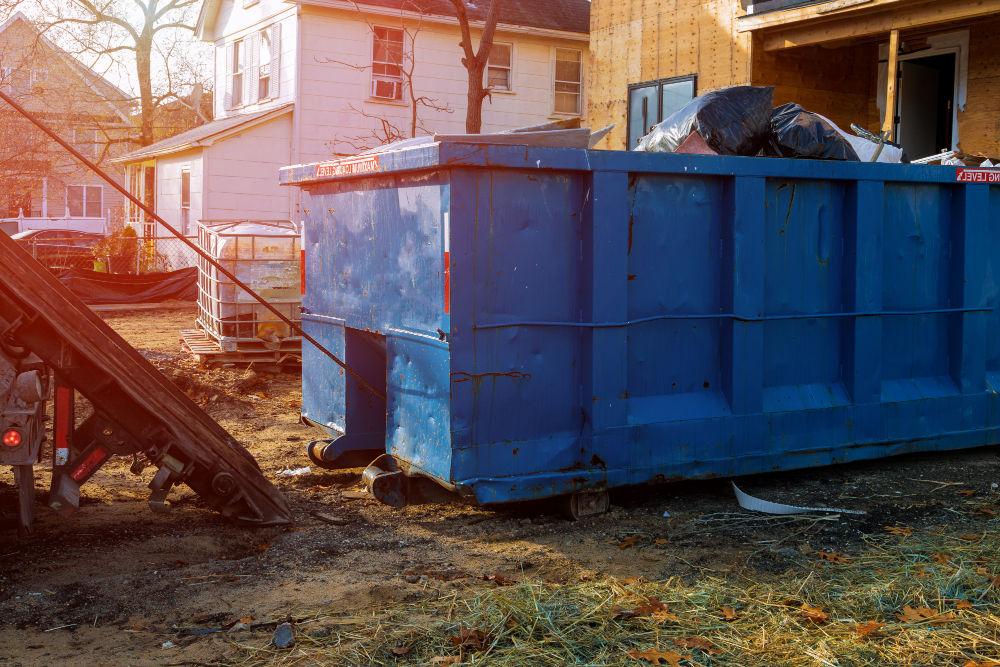Things You Can & Can’t Put in the Dumpster

When it comes to managing waste efficiently, knowing what you can and can't put in a dumpster is crucial. Whether you’re undertaking a home renovation, a construction project, or simply decluttering, renting a roll off container can make waste disposal easier and more convenient. However, throwing prohibited items into a dumpster can lead to additional fees, environmental harm, and legal issues.
In this blog post, we’ll explore the dos and don’ts of dumpster disposal. We’ll cover common items that are allowed, items that are typically restricted, and provide tips to help you stay compliant with local regulations. If you're looking for a reliable roll off container rental in Ocala, FL, contact All Waste Dumpster today to request a quote.
Things You Can Put in the Dumpster
Household Junk
Most household junk is permissible to dispose of in a roll off container. This includes:
- Furniture: Old couches, chairs, and tables are generally acceptable.
- Appliances: Non-hazardous appliances like microwaves and ovens are okay. Make sure to remove any hazardous components.
- Clothing: Unwanted clothing items can be thrown in the dumpster.
Construction Debris
If you’re working on a construction project, you’ll be pleased to know that many types of construction debris are allowed, such as:
- Wood: Lumber, plywood, and other wood materials.
- Drywall: Both old and new drywall can be disposed of.
- Concrete: Small amounts of concrete, bricks, and stone.
Yard Waste
Yard clean-up projects can generate a lot of waste. Fortunately, most yard waste is acceptable:
- Grass Clippings: Easily disposed of in a roll off container.
- Branches: Tree branches and smaller wood scraps.
- Leaves: Fallen leaves from your yard.
Miscellaneous Items
There are various other items you can safely throw into a dumpster:
- Paper Products: Newspapers, magazines, cardboard.
- Plastics: Non-hazardous plastic items.
- Metal: Scrap metal and small metal items.
Things You Can’t Put in the Dumpster
Hazardous Materials
Hazardous materials pose significant risks to human health and the environment. These items are strictly prohibited:
- Paint: Oil-based paints and certain other types of paint contain toxic chemicals.
- Chemicals: Pesticides, solvents, and other industrial chemicals.
- Batteries: Car batteries and rechargeable batteries contain harmful substances like lead and cadmium.
Electronics
Electronics contain components that can be hazardous if not disposed of properly:
- Televisions: CRT and flat-screen TVs.
- Computers: Desktops, laptops, and peripherals like keyboards and mice.
- Mobile Devices: Phones and tablets.
Tires
Tires are not accepted in dumpsters because they can cause damage to landfills and are difficult to dispose of:
- Car Tires: Standard automobile tires.
- Truck Tires: Larger tires from trucks and heavy machinery.
Medical Waste
Medical waste can be dangerous and requires special handling:
- Sharps: Needles, syringes, and lancets.
- Pharmaceuticals: Medicines and drugs.
- Biological Waste: Items contaminated with bodily fluids.
Special Considerations
In addition to the general categories above, there are specific considerations you should keep in mind:
- Asbestos: Asbestos-containing materials are hazardous and require specialized disposal.
- Freon-Containing Appliances: Items like refrigerators and air conditioners must have the Freon removed before disposal.
- Propane Tanks: These can explode if not handled properly, so they are typically not allowed in dumpsters.
Local Regulations and Tips
Check Local Regulations
Every locality has its own set of rules and regulations regarding dumpster use. It’s important to check with your local waste management authority to ensure compliance.
Separate Your Waste
Separating your waste into permissible and non-permissible categories can save you time and money. Keep hazardous and restricted items separate and dispose of them according to local guidelines.
Utilize Recycling Programs
Many items that can’t go into a dumpster can still be recycled. Take advantage of local recycling programs to dispose of electronics, batteries, and other recyclable materials.
Contact Your Rental Service
When in doubt, always consult with your roll off container rental service. They can provide specific guidance on what can and can’t be disposed of in their dumpsters.
Why Choose All Waste Dumpster in Ocala, FL
At All Waste Dumpster, we make waste disposal simple and hassle-free. Our team is committed to providing reliable roll off container rental services in Ocala, FL. We offer a range of dumpster sizes to fit your needs and ensure timely delivery and pick-up.
Benefits of Choosing Us:
- Flexible Rental Periods: We offer flexible rental periods to suit your project timeline.
- Transparent Pricing: No hidden fees. You’ll know exactly what you’re paying for.
- Customer Support: Our friendly customer support team is always ready to assist you with any questions or concerns.
Let All Waste Dumpster help you manage your waste efficiently and responsibly.
Conclusion
Understanding what you can and can't put in a dumpster is essential for safe and compliant waste disposal. By following the guidelines outlined in this blog post, you can avoid additional fees and environmental harm while ensuring your project runs smoothly.
Whether you’re tackling a home renovation, a construction project, or a big clean-up task, renting a roll off container can make the process much more efficient. Remember to check local regulations, separate your waste, and utilize recycling programs for items that can’t go into a dumpster.
If you need a reliable roll off container rental in Ocala, FL, look no further than All Waste Dumpster. Contact us today to request a quote and take the first step towards hassle-free waste management.